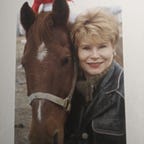Encouragement for the Caregiver of a Loved One With Dementia.
Everywhere are 12-step programs for alcohol, drugs, co-dependents, gambling and more, but I used the 12 steps, especially the first three, to cope with my husband’s Lewy Body Dementia. I used other 12-step suggestions too.
- Admitted we were powerless over alcohol and that our lives have become unmanageable. I substituted the word alcohol with the word dementia. We are powerless. Our lives are unmanageable.
- Came to believe that a Power greater than ourselves could restore us to sanity. The dementia caregiver doubts their own sanity during this horrific illness, especially at the end.
- Made a decision to turn our will and our lives over to the care of God as we understand him. This is very difficult. My will was to have a healthy and cognizant spouse. God’s will in this? Faith will be tested.
Notice that these first three steps are about you, your emotional, physical and spiritual health first and foremost. It must be! Your loved one needs a healthy caregiver. As has been said on countless airplanes before departure, put your oxygen mask on first. These first three steps give us a foundation. A way to cope.
Caring for your loved one with Dementia, like the 12-step program, is a one-day-at-a time journey, even though there’s a popular book that calls it the 36-hour Day. It is. I highly recommend the book, the 36-Hour Day. It’s practical and encouraging.
The financial worries, the decision to commit your loved one to a care home, the midnight crisis are too much to take on, unless one takes it one-day-at-a- time, even one hour at a time.
12-step programs also stress outside help, therapist or sponsor. With the lock-downs and isolation due to the Corona virus, this can still be accomplished. One may contact their local Office on Aging, social worker, online sights and blogs. I visited many blog sites in the middle of the night and would receive support and love from other caregivers all over the world. Did it fix anything? No. However, we can keep going knowing we’re loved and not alone.
But you will be alone more than you realize. Your friends and family will feel awkward, even afraid of your loved one’s illness. They don’t want to acknowledge that this could happen to them. It has nothing to do with you so don’t take it on. Enlist their help. They’ll feel relieved and glad to support.
Ask them to run an errand such as pick up a prescription or groceries.
Mow the lawn or shovel the walk.
Too much laundry? Someone will be glad to help.
Ask someone to “babysit” while you take a nap. A deserved nap.
Can’t cook? Too many other obligations? Ask someone to pick up some take out.
Need a ride? Someone will and happy to do so.
Ask a trusted, nonjudgmental friend to listen to you. They will. Go ahead and vent. They may not know what to say. That’s okay. Believe it or not, sharing your experiences helps educate our communities, churches and synagogues about dementia and the forgotten caregivers’ unique and stressful challenges. I had an older, faithful dog that listened and comforted too. Don’t discount your pets.
Local churches are willing to help. I know, I know. Fear of being overrun by zealots. That was not my experience. Choose a church whose faith you are somewhat familiar.
Keep a journal. You may share it someday with another caregiver. I wrote a little book, Meditations and Encouragement for the Caregiver of a Loved One With Dementia for this purpose. Best Seller? Heck no! Not a popular, movie-making proposition, but a small help, I hope, for the caregiver on the run or alone in the middle of the night.
You will be on alert! Frazzled. PTSD-like. Tempted to drink too much, shop too much, eat too much. And you will. Forgive yourself. Love yourself. Hold yourself. Have compassion for yourself. If anybody deserves this, you do.
Forgive, when you are able, those that abandon you. It happens.That’s another unforeseen challenge in the dementia journey.
The Serenity Prayer is another help from the 12-step program. I used it daily and sometimes hourly.
“God, grant me the serenity to accept the things I cannot change, the courage (and it takes lots of courage) to change the things I can and the wisdom to know the difference.”
Until there is a cure, my heart and prayers are with you fellow caregivers.
